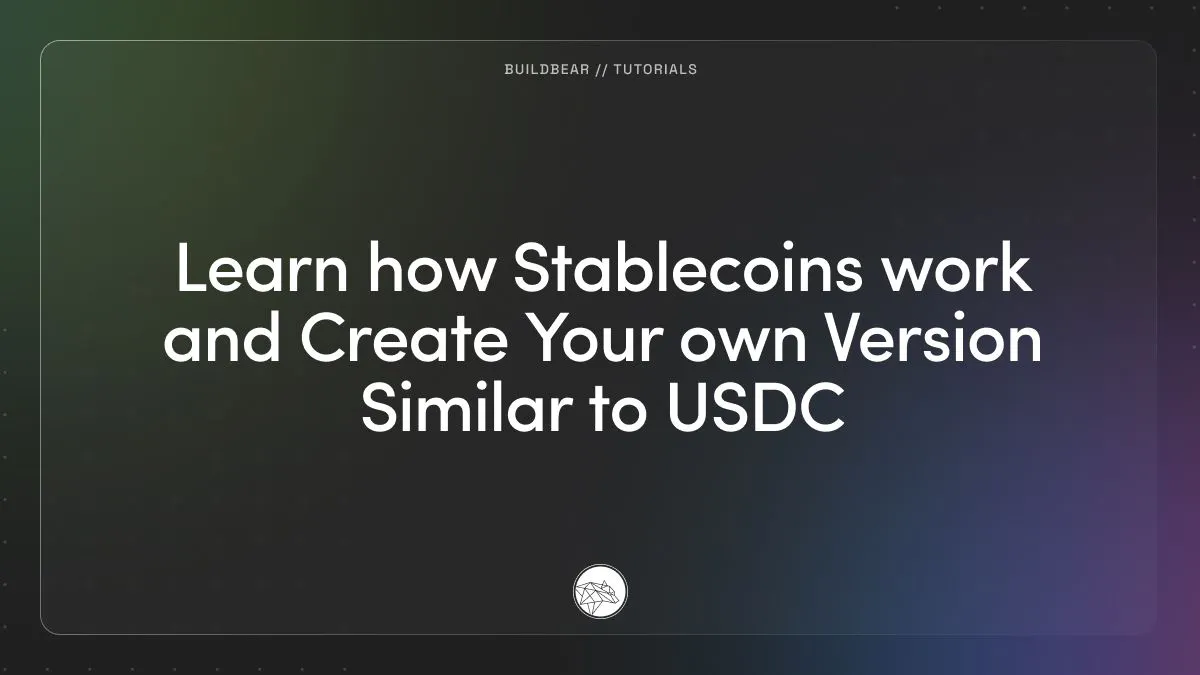What Is the Ethereum Cancun-Deneb (Dencun) Update?
 BuildBear
BuildBear
Get ready for the next big step in Ethereum: the Dencun upgrade! Following the Shanghai upgrade in April 2023 which allowed you to finally unlock your staked ETH, Dencun arrives with exciting changes. It's the kick-off for "The Surge" phase, which means Ethereum is revving up for major speed improvements. In Vitalik Buterin's words, it's aiming for a mind-blowing "10,000+ transactions per second!"
To achieve this massive growth, Dencun paves the way for wider use of layer-two rollups, special tools that handle transactions off the main network, making things smoother and faster. One key upgrade, called proto-danksharding, will significantly lower fees on these rollups, encouraging even more people to use them.
Before unleashing Dencun on the real network, it will be thoroughly tested on special practice grounds called testnets. Once everything runs smoothly, the upgrade will be ready to transform Ethereum, making it faster, more accessible, and ready for the future!
Ethereum Dencun EIPs Explained
Let’s understand the nine EIPs that will be implemented during the Dencun Ethereum upgrade.
EIP-1153: Transient storage opcodes
EIP-4788: Beacon block root in the EVM
EIP-4844: Shard Blob Transactions
EIP-5656: MCOPY - Memory copying instruction
EIP-6780: SELFDESTRUCT only in same transaction
EIP-7044: Perpetually Valid Signed Voluntary Exits
EIP-7045: Increase Max Attestation Inclusion Slot
EIP-7514: Add Max Epoch Churn Limit
EIP-7516: BLOBBASEFEE opcode
Let's take a quick look at each Dencun EIP:
EIP-1153: This adds two new options for storing temporary data: TLOAD and TSTORE. They work like the existing options (SLOAD and SSTORE), but the data gets deleted automatically after each transaction. This makes them faster and cheaper to use.
EIP-4788: This connects the Ethereum mainnet (execution layer) to the Beacon Chain (consensus layer) more closely. It stores information about the Beacon Chain blocks on the mainnet, allowing applications to directly check their validity on the blockchain.
EIP-4844: This is a big one, known as "proto-danksharding." It's a key step towards increasing Ethereum's transaction capacity by making rollups (sidechains) more efficient and cost-effective.
EIP-5656: This adds a new option for copying data within the Ethereum virtual machine (EVM): MCOPY. It's simpler and cheaper than the existing methods, especially for complex applications and tools.
EIP-6788: This finally removes the controversial "SELFDESTRUCT" feature, with some exceptions. Now, a contract can only self-destruct if it's done within the same transaction as its creation. Otherwise, it will just transfer its funds and remain active.
EIP-7044: This makes it easier for validators to leave the network. Previously, their exit messages had a short expiration date, which caused complications. Now, they can be valid for much longer, simplifying the process.
EIP-7045: This gives validators more time to confirm transactions. They have a wider window to submit their votes on Beacon Chain blocks, ensuring that more transactions are processed smoothly.
EIP-7514: This puts a limit on the number of new validators joining the network each time. This was necessary to control the network's growth and prevent overloading.
EIP-7516: This adds a new tool for contracts to access information about data gas fees on the Beacon Chain. This can be used for various purposes, including creating contracts that react to changing fees.
Key Benefits of Ethereum Cancun
Ethereum Cancun is a game-changer! It's not just fixing problems, it's opening doors for everyone. Here's what it brings to the table:
1. Faster transactions on layer 2s: Cancun lets layer 2s handle more transactions per second, like scaling up a highway with extra lanes. This mainly comes from "proto-danksharding," which gives temporary storage space for Layer 2 rollups to handle more transactions without getting bogged down.
2. Cheaper fees: Proto-danksharding introduces "blob-carrying transactions" that act like little trailers attached to regular transactions, carrying extra data cheaply.
3. Stronger security: Cancun takes care of your assets with EIP-6780, which limits how contracts can self-destruct. This keeps your data and funds safer.
4. Easier cross-chain Communication: EIP-4788 exposes Beacon chain data to execution layers, This makes interacting with other blockchains smoother and safer, especially for Layer 2 solutions.
5. Smarter storage: EIP-1153 optimizes data storage on Ethereum, like decluttering your house to make room for more. This saves space and gas fees, especially for Layer 2 solutions that need to manage data efficiently.
6. Future-proof innovations: EIP-5656 tweaks Ethereum's code ever so slightly, paving the way for future cool things like new Layer 2 solutions that work even better. Think of it as planting seeds for future progress!
About BuildBear:
BuildBear is a platform tailored for DApp development and testing. Developers gain the freedom to construct a personalized Private Testnet sandbox across various blockchain networks. The liberty to mint unlimited Native and ERC20 tokens and rapid transaction times on BuildBear (under 3 seconds!) enhances the DApp development lifecycle manifold. The platform comes equipped with tools designed for real-time testing and debugging, ensuring developers can keep tabs on intricate blockchain transactions with unparalleled ease.
Connect with us on Twitter | LinkedIn | Telegram | GitHub
Author: chandan
Subscribe to my newsletter
Read articles from BuildBear directly inside your inbox. Subscribe to the newsletter, and don't miss out.
Written by

BuildBear
BuildBear
BuildBear is a platform for testing dApps at scale, for teams. It provides users with their own private Testnet to test their smart contracts and dApps, which can be forked from any EVM chain. It also provides a Faucet, Explorer, and RPC for testing purposes.